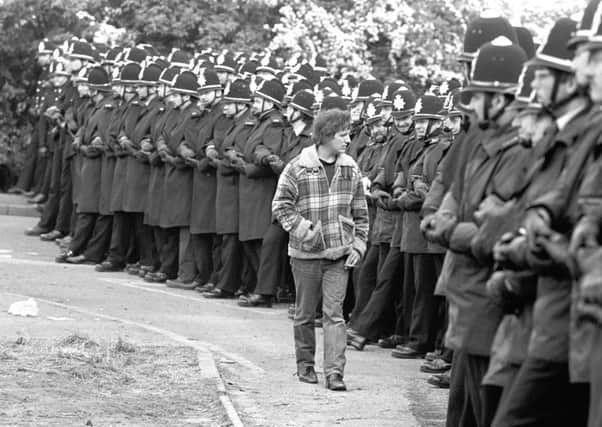Orgreave decision finally revealed to ‘interested parties’ - but it’s confidential


The Independent Police Complaints Commission (IPCC) has come under fire for the two years it has taken to decide if it will carry out a full Hillsborough-style probe into the clashes between police and striking miners.
A report setting out the decision was completed earlier this year but was not revealed because officials wanted to check it did not prejudice the ongoing Hillsborough inquests relating to officers in the same era.
Advertisement
Hide AdAdvertisement
Hide AdThe IPCC now says it has shared the rationale document, and the decision, with “some interested parties, including a complainant”, on a “strictly confidential basis”.
A spokeswoman said: “We have also advised them that we have decided not to publish at this time and our reasons for that decision. We will publish the decision and the supporting rationale as soon as we can.”
The spokeswoman added that the IPCC completed the assessment of available information in January “and made decisions on whether any matters should be investigated”.
She said: “The decisions follow careful consideration of many thousands of pages of documents, film and photographic material which have been found and obtained by the IPCC over the last two years, including important documents uncovered in material provided from South Yorkshire Police in December 2014.
Advertisement
Hide AdAdvertisement
Hide Ad“The decision and rationale documents have been shared on a strictly confidential basis with some interested parties, including a complainant, and we are awaiting a response from others to the offer to read the documents.”
In the Battle of Orgreave 95 miners were arrested at the Orgreave coking plant, near Rotherham, on June 18, 1984, after clashes with police during the Miners’ Strike.
When the cases came to court, all were abandoned after it became clear that evidence provided by police was unreliable. South Yorkshire Police paid £425,000 in compensation to 39 pickets in out-of-court settlements.
South Yorkshire Police referred itself to the IPCC in 2012 after a BBC documentary claimed officers may have colluded in writing court statements which saw miners wrongly charged.
Advertisement
Hide AdAdvertisement
Hide AdThe IPCC has faced mounting anger over the length of time it has taken to decide whether the circumstances meet the criteria for “exceptional circumstances” that would justify a full probe into a historic matter.